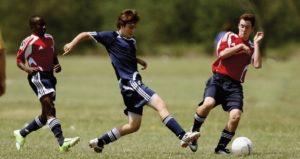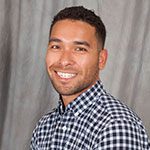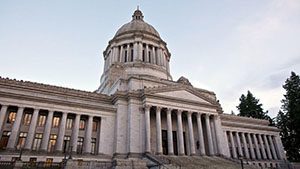2019 Legislative Priority: Expanded Learning Opportunities
By League of Education Voters Policy Team
We believe students come first. We are focused first and foremost on meeting the needs of every student.
We are dedicated to designing an equitable education system that serves all students based on their strengths, supports their needs, and provides the resources they need to be successful.
We are committed to working to close gaps experienced by historically and systemically underserved students— including students of color, students in poverty, students qualifying for special education services, students learning English, and students impacted by trauma. We believe this will lead to all students experiencing greater success and reaching their full potential.
WHY WE SUPPORT EXPANDED LEARNING OPPORTUNITIES
 Expanded learning opportunities – afterschool, weekend, or summer programming for school-age students – promote academic achievement, leadership skills, and involve youth in their communities. Unfortunately, youth from low income families get the least exposure to family reading time, weekend day trips, preschool, summer camp, and afterschool programming, compared to their peers from non-low income households (1). It adds up to a 6,000-hour learning gap by 6th grade – and only gets wider as they enter junior high and high school (2). This learning gap has an impact on school attendance and performance, as well as students’ opportunity to be fully prepared for college or career. Ability to access afterschool and summer school programs also impacts student safety, because the hours between 3 and 6pm are those in which youth are most susceptible to risky or adverse behaviors (3). Read More
Expanded learning opportunities – afterschool, weekend, or summer programming for school-age students – promote academic achievement, leadership skills, and involve youth in their communities. Unfortunately, youth from low income families get the least exposure to family reading time, weekend day trips, preschool, summer camp, and afterschool programming, compared to their peers from non-low income households (1). It adds up to a 6,000-hour learning gap by 6th grade – and only gets wider as they enter junior high and high school (2). This learning gap has an impact on school attendance and performance, as well as students’ opportunity to be fully prepared for college or career. Ability to access afterschool and summer school programs also impacts student safety, because the hours between 3 and 6pm are those in which youth are most susceptible to risky or adverse behaviors (3). Read More
 By Daniel Zavala, League of Education Voters Director of Policy and Government Relations
By Daniel Zavala, League of Education Voters Director of Policy and Government Relations The Washington state Legislature passed a state budget agreement (
The Washington state Legislature passed a state budget agreement ( Ruben is a senior at Walla Walla High School, and recently secured a job as a Walla Walla Public Schools afterschool tutor. Throughout his afterschool journey, Ruben has acquired a number of real-world skills, and has made many friends and professional contacts along the way.
Ruben is a senior at Walla Walla High School, and recently secured a job as a Walla Walla Public Schools afterschool tutor. Throughout his afterschool journey, Ruben has acquired a number of real-world skills, and has made many friends and professional contacts along the way. Low-income kids get the least exposure to family reading time, weekend day trips, preschool, summer camp, and after-school programming – adding up to a 6,000 hour learning gap by 6th grade.(1)
Low-income kids get the least exposure to family reading time, weekend day trips, preschool, summer camp, and after-school programming – adding up to a 6,000 hour learning gap by 6th grade.(1)